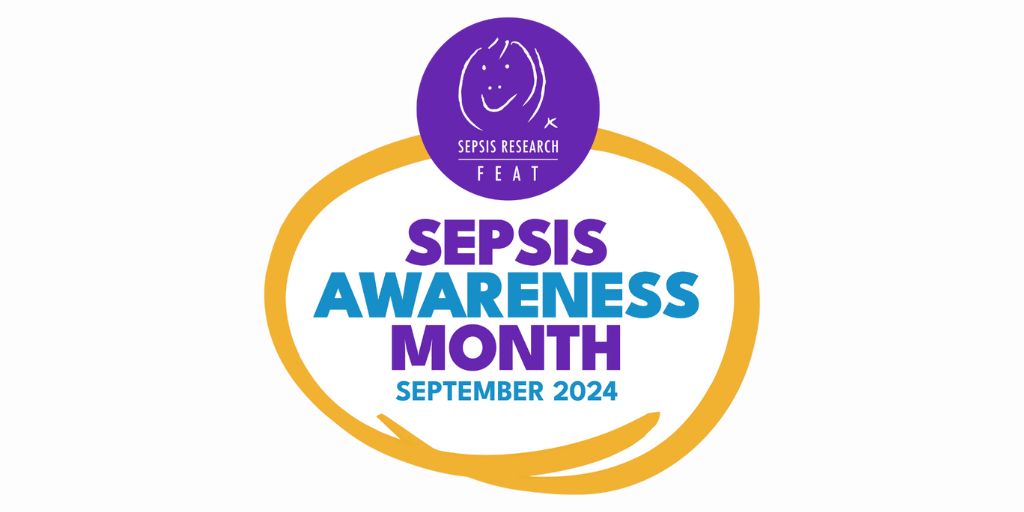
As Sepsis Awareness Month approaches this September, a leading intensive care consultant is urging people to take immediate action if they suspect sepsis, even if they have previously been sent home by medical professionals. Dr Andrew Conway Morris, Medical Director for charity Sepsis Research FEAT and a renowned researcher and intensive care physician, stresses the importance of patients self-advocating and re-presenting to healthcare professionals if they continue to feel unwell and show symptoms of this life-threatening condition.
Sepsis is a serious medical condition that occurs when the body’s response to an infection goes into overdrive and damages its own tissues and organs. If not recognised and treated promptly, sepsis can lead to organ failure, septic shock, and death. Despite significant advances in vaccines, antibiotics and intensive care, sepsis remains the leading cause of preventable death worldwide. There are circa 250k cases in the UK every year – or roughly one every 12 minutes. The condition can be indiscriminate and deadly, often claiming the lives of previously healthy individuals in a matter of hours.
“Sepsis takes more lives in the UK every year than breast, bowel and prostate cancer combined. That’s circa 250,000 cases per year, roughly one every twelve minutes and can be incredibly difficult to diagnose due to its symptoms overlapping with those of other common illnesses,” said Dr Conway Morris. “That’s why it’s so crucial for individuals to be aware of the signs and symptoms of sepsis and to seek medical attention immediately if they feel unwell, even if they have already sought care and were sent home.”
Early recognition and treatment of sepsis are critical for survival. Symptoms may include fever, chills, rapid breathing, rapid heart rate, confusion, disorientation, extreme pain or discomfort, and clammy or sweaty skin. Dr Conway Morris emphasises that people should not wait for symptoms to worsen before seeking medical help, as every hour of delay can significantly increase the risk of death.
“Despite advancements in modern medicine, sepsis continues to be a significant global health challenge, claiming millions of lives annually. Equally around half of those who survive sepsis will go on to experience life-changing consequences – from PTSD to amputations,”
Dr Conway Morris added. “As we observe Sepsis Awareness Month this September, Sepsis Research FEAT aims to educate the public, encourage vigilance, and ultimately save lives. If you or a loved one feels something isn’t right, trust your instincts and seek medical help immediately. You have the right to be heard and to demand the care you need.”
Sepsis Research FEAT is committed to raising awareness and providing education about the signs and symptoms of sepsis, as well as supporting ongoing research efforts to improve outcomes for those affected. Throughout Sepsis Awareness Month, the organisation will be engaging in various initiatives to help spread knowledge and prevent unnecessary deaths from this devastating condition.
For more information about sepsis, its symptoms, and what to do if you suspect someone may have sepsis, please visit https://sepsisresearch.
Dr Andrew Conway Morris and Beth Budgen are featured in the latest podcast from Sepsis Research FEAT. They discuss the complexities of sepsis, its impact on survivors, and ongoing research efforts. Dr. Morris shares his medical and research expertise, while Beth Budgen, as a sepsis survivor, provides a personal perspective on the condition.











